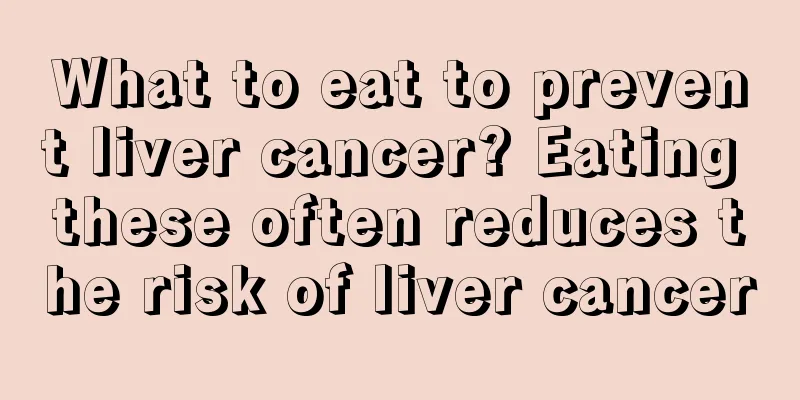Why is blood sugar high after a meal? It is caused by these five reasons

|
High blood sugar has become the most common disease in today's society, especially among middle-aged and elderly people. Some patients show persistent high blood sugar, while some patients have high blood sugar after meals. This is mainly due to five major causes: improper medication, insufficient basal medication dosage, increased secretion of hormones antagonizing insulin in the early morning, damage to pancreatic cells, lack of monitoring of postprandial blood sugar, and patient diet. First, patients use medication improperly Some patients with type 2 diabetes have obvious obesity and insulin resistance, but they have been using long-acting insulin secretagogues. Since these drugs take a long time to take effect, they cannot effectively improve the early phase insulin secretion of diabetes and reduce insulin resistance, so it is often difficult to control postprandial blood sugar. Some patients mainly use medium- and long-acting insulin when using insulin, rather than combining it with short-acting or ultra-short-acting insulin that has a fast onset of action, so their blood sugar levels after meals are prone to being high. Second, the basic dosage is insufficient and the secretion of hormones that antagonize insulin increases in the morning. A considerable number of diabetic patients take glucose-lowering drugs only during the day, including those receiving insulin therapy. Because the efficacy of hypoglycemic drugs cannot last until the second half of the night, and because at dawn, in order to prepare for the day's work, the body's secretion of hormones that antagonize the hypoglycemic effect of insulin increases. These hormones can increase blood sugar, causing a significant increase in blood sugar in the early morning and after breakfast. Third, pancreatic islet cell damage Since diabetic patients have impaired insulin secretion in the early stages and delayed insulin peak, their blood sugar levels often rise significantly after meals. If the patient also has severe insulin resistance, the postprandial hyperglycemia will persist for a long time. Fourth, lack of monitoring of post-meal blood sugar When monitoring their blood sugar, most patients tend to only pay attention to fasting blood sugar and rarely monitor postprandial blood sugar. Due to the lack of monitoring of postprandial blood sugar, there are rarely a series of measures taken to address postprandial high blood sugar, such as controlling diet, exercising, or using drugs to lower postprandial blood sugar. As a result, once the doctor asks to check the postprandial blood sugar, people often find that their blood sugar is alarmingly high and their glycosylated hemoglobin is also significantly elevated. Fifth, the patient's diet The increase in postprandial blood sugar is most obvious after breakfast and lunch. In addition to the fact that the secretion of anti-insulin hormones in the morning is greater and the liver produces a large amount of glucose, it may also be related to the quality, quantity and cooking methods of the patient's breakfast. Some patients like to drink porridge for breakfast. Since porridge is heated for a long time, starch is easily dissolved in water. After eating, it can come into contact with digestive juice extensively and is easily absorbed. In addition, porridge is in a semi-fluid state, and the stomach emptying time after eating is relatively short. Therefore, eating porridge for breakfast is more likely to increase postprandial blood sugar than eating staple food. The above is the answer to the question "What causes high blood sugar after meals?" If you are troubled by this problem, you can look at the cause of your own situation, and then find a suitable solution to help yourself solve the problem based on the cause. Only in this way can you achieve a more ideal effect in solving the problem of high blood sugar after meals. |
<<: What is the cause of coccyx pain? It is caused by these reasons
>>: How to effectively treat heat in the palms and soles of feet
Recommend
Effects and functions of bottle gourd seeds
Many people must have eaten bottle gourd, which i...
What are the characteristics of abdominal pain in colorectal cancer?
Colorectal cancer patients often experience abdom...
What are the hazards of using a humidifier
With the continuous progress of modern life, vari...
Is it better for a soymilk machine to have internet or not?
The food safety problem in our country today is i...
What are the symptoms of brain development delay?
Symptoms of delayed brain development can also ma...
What are the symptoms of lung cancer? If you have these 4 symptoms, be careful that it is lung cancer
Everyone is very afraid of cancer. The reason for...
What can patients with hamartoma eat to get better quickly
Due to the lack of understanding of hamartoma, ma...
Stay away from these 6 types of water and you will never get cancer
1. Drinking "thousands of boiling water"...
The role and efficacy of coenzyme a
Coenzyme A is an enzyme and a synthetic substance...
4 kinds of vegetables that are beneficial for preventing breast cancer
As the saying goes, disease comes from the mouth,...
What should I do if my new leather shoes rub my heels?
After buying a pair of shoes, we often can't ...
What are the nursing methods for liver cancer? Three major nursing measures for liver cancer patients
1. General care 1. Warmly welcome patients, do a ...
Can I drink tea if I have cervical spondylosis
Drinking tea will not affect the health of patien...
Swollen eyes due to inflammation
In real life, getting angry is a very common phys...
Diagnosis of endometrial cancer examination items
In our daily life, the incidence of endometrial c...









